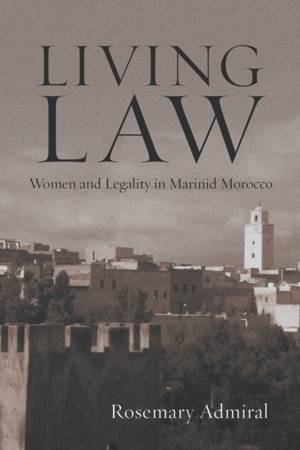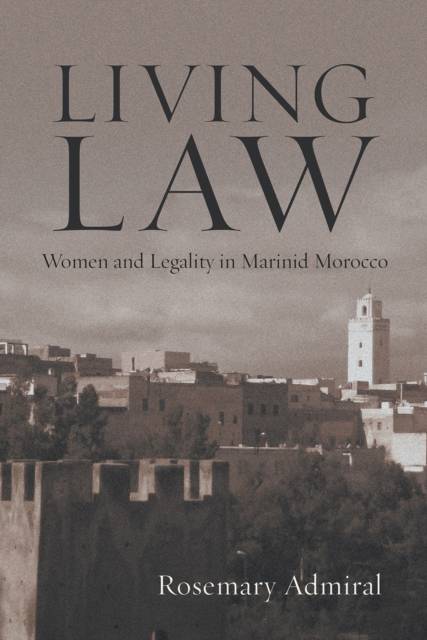
- Retrait gratuit dans votre magasin Club
- 7.000.000 titres dans notre catalogue
- Payer en toute sécurité
- Toujours un magasin près de chez vous
- Retrait gratuit dans votre magasin Club
- 7.000.0000 titres dans notre catalogue
- Payer en toute sécurité
- Toujours un magasin près de chez vous
Description
In Living Law, Rosemary Admiral provides a groundbreaking history of women's legal engagement in Marinid Morocco between the thirteenth and fifteenth centuries that fundamentally challenges contemporary assumptions about women's relationships to Islamic legal traditions. Drawing on a rich collection of fatwas (legal documents) from Fez and surrounding areas, Admiral demonstrates how women--some without formal education--strategically navigated complex legal landscapes to protect their interests, expand their rights, and reshape social dynamics.
Contrary to prevailing narratives that portray Islamic law as a monolithic, oppressive system, the book shows how women actively co-produced legal interpretations. They used sophisticated strategies like contract stipulations, exploring plurality in legal opinions, and consulting local scholars to renegotiate marriage terms and expand their rights. These women did not view the legal system as an enemy, but as an instrument for challenging misdeeds and addressing community needs. Admiral draws attention to the historical practice and implementation of the Maliki school of Islamic law in an area that remained outside of Ottoman control. She highlights women's engagement with Islamic law as deeply embedded in support systems encompassing families, communities, and legal structures, and makes visible women's agency and power.Spécifications
Parties prenantes
- Auteur(s) :
- Editeur:
Contenu
- Nombre de pages :
- 288
- Langue:
- Anglais
- Collection :
Caractéristiques
- EAN:
- 9780815611844
- Date de parution :
- 15-09-25
- Format:
- Livre relié
- Format numérique:
- Genaaid
- Dimensions :
- 170 mm x 224 mm
- Poids :
- 453 g

Les avis
Nous publions uniquement les avis qui respectent les conditions requises. Consultez nos conditions pour les avis.






